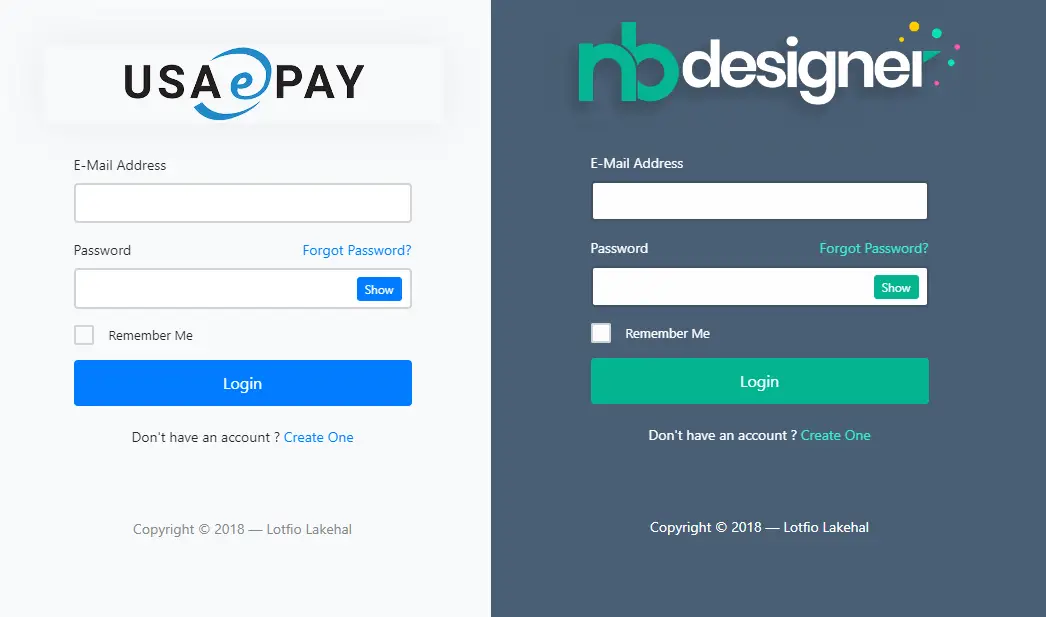How to Get all loaded assemblies in C#
By Tan Lee Published on Feb 04, 2025 635
This will return all assemblies that are currently loaded into the application's domain.
using System;
using System.Reflection;
class Program
{
static void Main(string[] args)
{
foreach (var assembly in AppDomain.CurrentDomain.GetAssemblies())
{
Console.WriteLine($"Name: {assembly.GetName().Name}");
Console.WriteLine($"Version: {assembly.GetName().Version}");
Console.WriteLine($"Location: {assembly.Location}");
Console.WriteLine();
}
}
}The output will list all the loaded assemblies in the current domain, for example:
Name: System.Private.CoreLib Version: 4.0.0.0 Location: C:\Program Files\dotnet\shared\Microsoft.NETCore.App\1.0\System.Private.CoreLib.dll Name: System.Runtime Version: 4.2.2.0 Location: C:\Program Files\dotnet\shared\Microsoft.NETCore.App\1.0\System.Runtime.dll Name: MyApp Version: 1.0.0.0 Location: D:\Projects\MyApp\bin\Debug\net5.0\MyApp.dll
Get custom assembly attributes
You can use assembly.GetCustomAttributesData() to retrieve all custom attribute values, as shown below:
foreach (var assembly in AppDomain.CurrentDomain.GetAssemblies())
{
Console.WriteLine(assembly.FullName);
foreach (var attribute in assembly.GetCustomAttributesData())
{
Console.WriteLine(attribute);
}
Console.WriteLine();
}Add your own custom assembly metadata
You can use the AssemblyMetadata attribute to add custom metadata to your assembly.
using System.Reflection;
[assembly: AssemblyMetadata("author", "John Doe")]
[assembly: AssemblyMetadata("project", "WeatherApp")]Get a specific assembly attribute
To retrieve these attributes, you can use the GetCustomAttributes<AssemblyMetadataAttribute>() method as shown below:
using System.Reflection;
static void Main(string[] args)
{
foreach (var assembly in AppDomain.CurrentDomain.GetAssemblies())
{
var name = assembly.GetName();
Console.WriteLine($"Name={name.Name} Version={name.Version} Location={assembly.Location}");
var customMetadataList = assembly.GetCustomAttributes<AssemblyMetadataAttribute>() ?? Enumerable.Empty<AssemblyMetadataAttribute>();
foreach (var customMetadata in customMetadataList)
{
Console.WriteLine($"{customMetadata.Key}={customMetadata.Value}");
}
Console.WriteLine();
}
}This outputs the custom metadata:
Name=WeatherApp Version=1.2.0.0 Location=D:\Projects\WeatherApp\bin\Debug\net5.0\WeatherApp.dll author=John Doe project=WeatherApp
Filter out system assemblies
To filter out system assemblies that are loaded as part of .NET, you can check the company name attribute.
using System.Reflection;
foreach (var assembly in AppDomain.CurrentDomain.GetAssemblies())
{
if (assembly.GetCustomAttribute<AssemblyCompanyAttribute>().Company != "Microsoft Corporation")
{
var name = assembly.GetName();
Console.WriteLine($"Name={name.Name} Version={name.Version}");
}
}This will exclude system assemblies and only show assemblies you’ve created:
Name=WeatherApp Version=1.2.0.0
Getting all loaded assemblies and outputting metadata as JSON
The following code collects the assembly name, version, location, build configuration, and target framework, then serializes it to JSON and outputs it:
using System.Reflection;
using System.Text.Json;
using System.Runtime.Versioning;
static void Main(string[] args)
{
var jsonOptions = new JsonSerializerOptions() { IgnoreNullValues = true, WriteIndented = true };
foreach (var assembly in AppDomain.CurrentDomain.GetAssemblies())
{
var metadataJson = JsonSerializer.Serialize(new
{
assembly.FullName,
assembly.GetName().Name,
version = assembly.GetName().Version.ToString(),
assembly.Location,
isMicrosoftAssembly = assembly.GetCustomAttribute<AssemblyCompanyAttribute>().Company == "Microsoft Corporation",
buildConfig = assembly.GetCustomAttribute<AssemblyConfigurationAttribute>()?.Configuration,
targetFramework = assembly.GetCustomAttribute<TargetFrameworkAttribute>()?.FrameworkName
}, options: jsonOptions);
Console.WriteLine(metadataJson);
}
}This will output JSON data like this:
{
"FullName": "System.Private.CoreLib, Version=4.0.0.0, Culture=neutral, PublicKeyToken=7cec85d7bea7798e",
"Name": "System.Private.CoreLib",
"version": "4.0.0.0",
"Location": "C:\\Program Files\\dotnet\\shared\\Microsoft.NETCore.App\\1.0\\System.Private.CoreLib.dll",
"isMicrosoftAssembly": true,
"buildConfig": "Release"
}
{
"FullName": "WeatherApp, Version=1.2.0.0, Culture=neutral, PublicKeyToken=null",
"Name": "WeatherApp",
"version": "1.2.0.0",
"Location": "D:\\Projects\\WeatherApp\\bin\\Debug\\net5.0\\WeatherApp.dll",
"isMicrosoftAssembly": false,
"buildConfig": "Debug",
"targetFramework": ".NETCoreApp,Version=v5.0"
}





